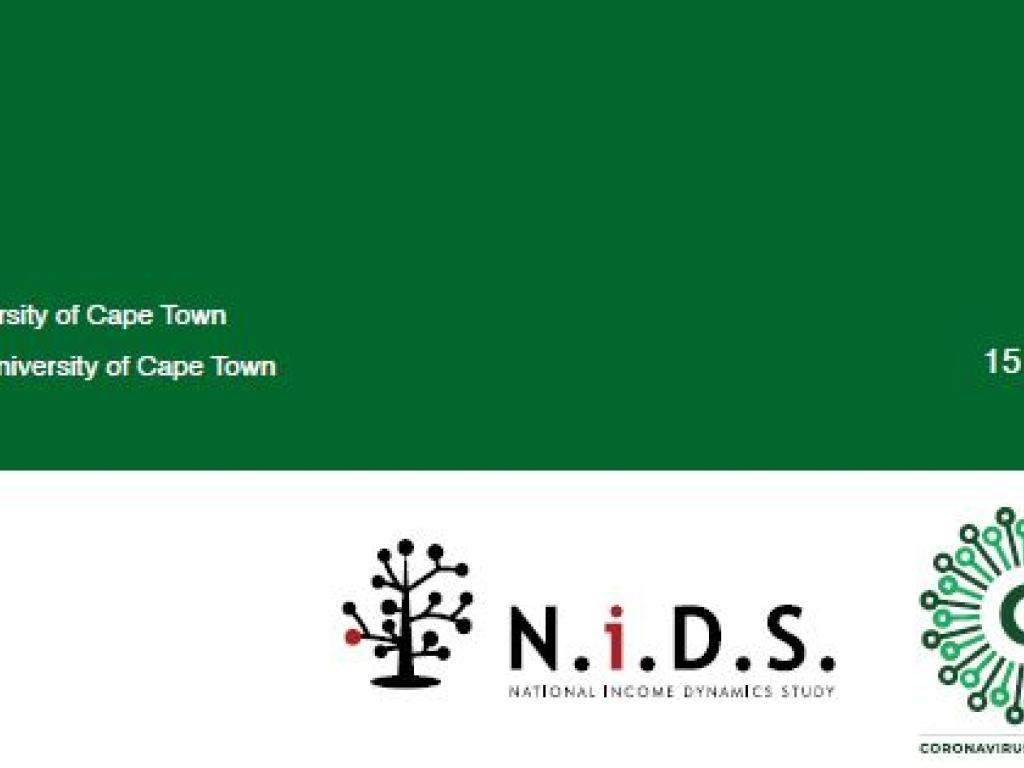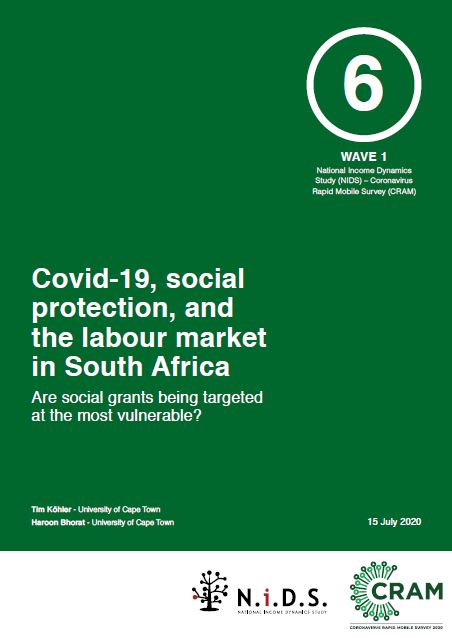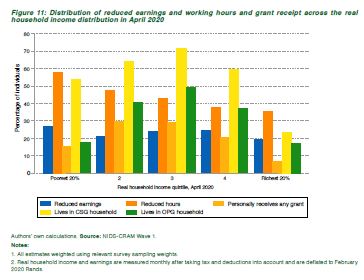Just Published: Covid-19, social protection, and the labour market in South Africa. Are social grants being targeted at the most vulnerable?

Prof Haroon Bhorat (DPRU Director) and Tim Köhler (DPRU Junior Researcher) are the authors of one of 11 research papers being launched today, 15th July 2020, during a webinar presenting the main findings from Wave 1 of the National Income Dynamics Study (NIDS) Coronavirus Rapid Mobile Survey (CRAM) study.
The survey investigates the socioeconomic impacts of the national lock down associated with the State of Disaster and the negative social and economic consequences of the current global Coronavirus pandemic. The purpose of the study is to provide evidence to support policy to help South Africa. Using 50 call center agents interviewing in 10 languages, a 20-minute telephonic survey was conducted in Wave 1, asking 7000 respondents about their employment, household hunger, migration, receipt of grants, as well as COVID-19 risk perceptions and behaviour.

In particular, the authors highlight heterogeneity in labour market outcomes before and during the national lockdown to show that social grants are an important source of income relief for individuals in low-income households. They show that these individuals have been disproportionately burdened by adverse labour market effects induced by the lockdown with respect to employment loss, the likelihood of having a paid job to return to, and reductions in working hours and earnings.
They show that grants substantially increase the incomes of poor households in relative terms and, through fiscal incidence analysis, show that the pandemic-induced additional government spending on grants have been pro-poor, especially that on the Child Support Grant. Considering the observed heterogeneity in labour market outcomes before and during lockdown across the household income distribution and that grants are relatively well-targeted, the authors conclude with a set of policy recommendations for South Africa’s social protection system going forward.

Read the paper in full here.
The launch webinar is scheduled for noon on 15th July 2020, and will be made available via YouTube in due course.
